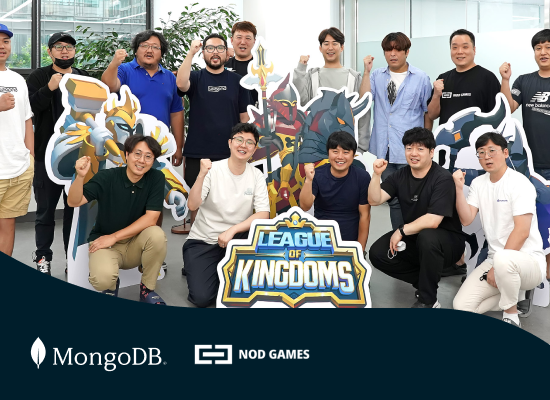NOD Games takes the lead in the blockchain game market with MongoDB Atlas and AWS


“With MongoDB Atlas, NOD Games was able to market the game in just 2 months. What's even more surprising is that we did all of this without downtime.”
Steve Hwang
CTO of NOD Games
CTO of NOD Games

“The cooperation with MongoDB will serve as a stepping stone for NOD Games to become a blockchain game platform company in the future.”
Chanki Lee
CEO of NOD Games
CEO of NOD Games
Take the next step
Get access to all the tools and resources you need to start building something great when you register today.
.svg)